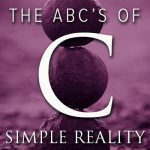 Only the wisest and stupidest of men never change.
Only the wisest and stupidest of men never change.
— Anonymous
“There’s always room for improvement, of course, but seeing how we could make things better is different from expecting the world to cure our inner dissatisfaction.” Sakyong Mipham Rinpoche represents the Buddhist worldview as he continues: “Asking outer conditions to make us okay will never bring happiness, because outer conditions are always changing. We are asking instability to bring about stability. According to the law of karma—cause and effect—that’s impossible.”[i]
The kind of change that we are talking about in this article is not relative change or change within P-B, but rather profound change meaning a paradigm shift, a change in our story.
Why are so few people able to shift from P-B to P-A? We suspect that fear is the main obstacle since such a profound change involves the ability to let go of old emotional conditioning, beliefs, values and attitudes.
As Carl Jung said, “Every transformation demands as its precondition ‘the ending of a world’—the collapse of an old philosophy of life.”[ii] Most people looking at that challenge turn back to P-B which is at least familiar:
- The familiar, however, we must remember is unsustainable.
- We can get people to use less fossil fuel, but global warming will still occur.
- We can get nations to sign nuclear arms reduction treaties, but a nuclear winter will eventually occur.
- We can get people to wash their hands assiduously, but pandemics will still occur.
- We can all hold hands and sing Kumbaya, but ethnic cleansing will still occur.
- We can send drones aloft and troops abroad, but terrorists will still elude capture and destruction.
- We can expand the war on drugs around the globe, but producers, distributors and users will grow more numerous.
- We can build walls along borders and patrol the crossing points diligently, but immigrants will still arrive undetected because …
All these problems exist in and were created by the human story which is being written each day and each moment in the human mind. We believe that story because it is our story and we will write the tragic ending unless we agree that we want to change that story in a profound way.
We would rather be ruined than changed,
We would rather die in our dread
Than climb the cross of the moment
And let our illusions die.
— W. H. Auden (1901-1973) British-born American poet
— Epilogue: The Age of Anxiety (Pulitzer Prize, 1948)
Another principle relating to the ability to change is to have the courage to commit to change. Many writings on psychotherapy fail to realize that decision precedes knowledge or insight. As Rollo May says: “The patient cannot permit himself to get insight or knowledge until he is ready to decide, until he takes a decisive orientation to life and has made the preliminary decisions along the way.”[iii] We would add that the “decisive orientation” is choosing P-A as the context in which the decision is made. A narrative that is less profound than an experience of the present moment will not support the paradigm shift that will transform human identity and human behavior. Profound change requires a profound context.
It is important for an individual to have a plan or blueprint such as Simple Reality to support the change that is inherent in the paradigm shift from P-B into the present moment. We must know where we are and who we are and have a practice that we know works from experience. Again, Rollo May: “Only when the person has some hope of getting relief from his suffering and despair and of receiving some help in his problems will he undertake the painful process of investigating his illusions and uncovering his defenses and rationalizations.”[iv]
Let us now go deeper in our insight into the fundamental nature of change and its relationship to Simple Reality. The paradox regarding change is that nothing that is “real” changes, so we need not fear that which “appears” to be real, that which is an illusion (P-B). We need only to stop identifying with that illusion, we need only to stop reacting to it, we need only to breathe and embrace the unchanging yet infinitely rich experience that is the present moment.
Only in P-A will we experience true and profound change. “Change is the movement of energy without hindrance. It is the echo of life itself. Change is freedom. It is the end of attachment. It is the end of fear. There is nothing that binds us, there never has been.”[v] Steven Harrison has expressed it very well, but it is up to us to make the change a reality, to “be the change” as it is often said.
The paradox of change is that there is an illusion of its being difficult since it involves overcoming the inertia of fear and our conditioned reactive behavior. But, in fact, when we live in the NOW, life is made easier, fear is reduced, and destructive bad habits are eliminated, hence, increasing the ease with which life can be lived and enjoyed.
Experience the paradox and joy inherent in authentic change.
[i] Rinpoche, Sakyong Mipham. “No Complaints.” Shambhala Sun. Boulder, Colorado, November 2004, p. 11.
[ii] Jung, C. G. Man and His Symbols. New York: Doubleday, 1964, p. 295.
[iii] May, Rollo. The Discovery of Being. New York: W. W. Norton and Company, 1983, p. 73.
[iv] Ibid.
[v] Harrison, Steven. Doing Nothing. New York: Tarcher/Putnam, 1997, pp. 69-70.


